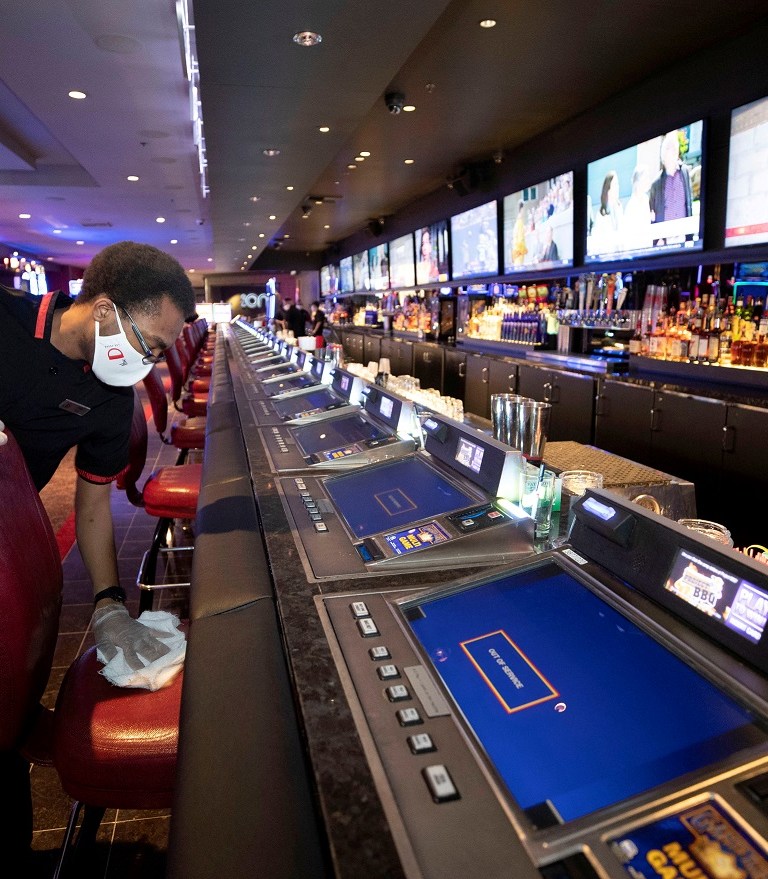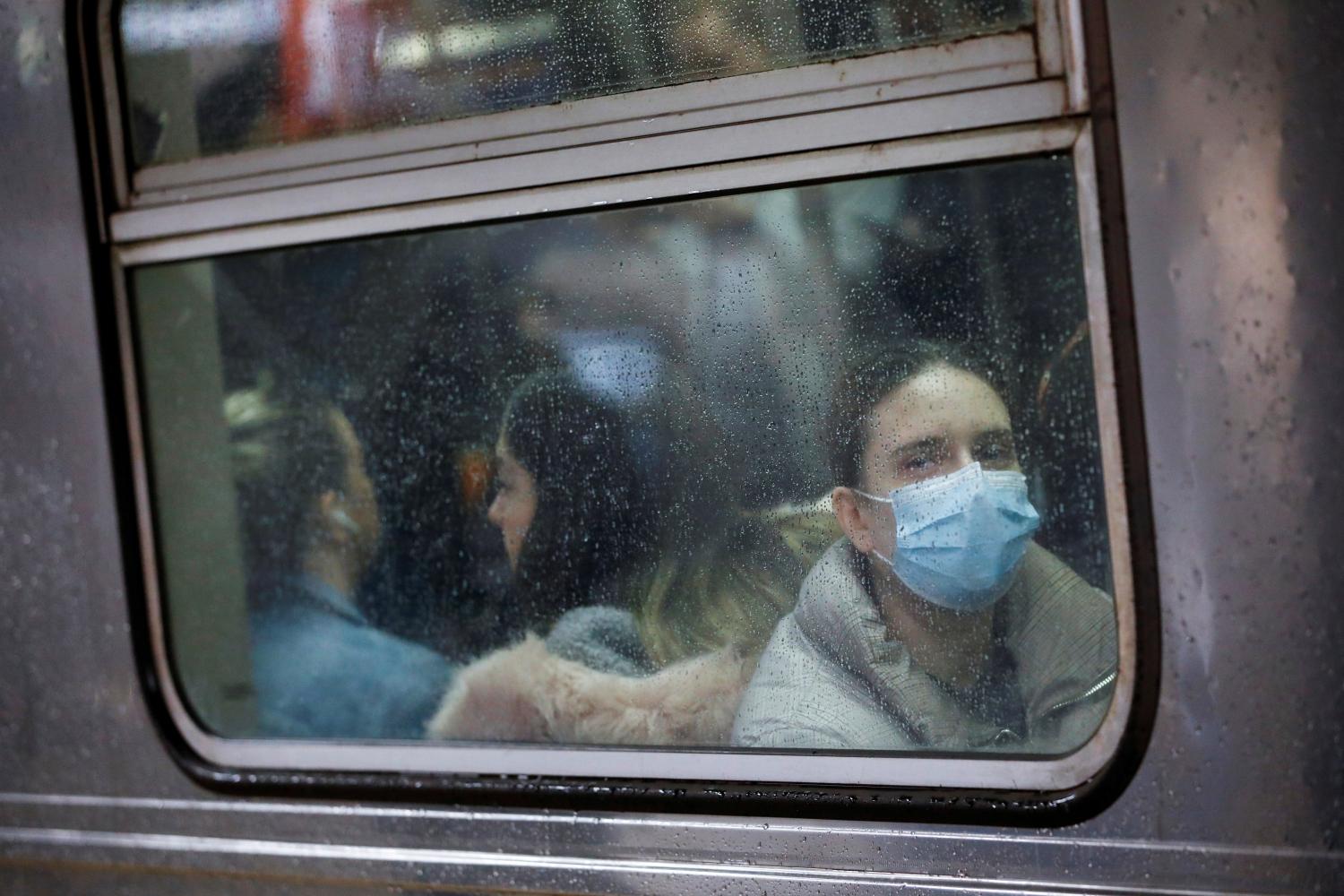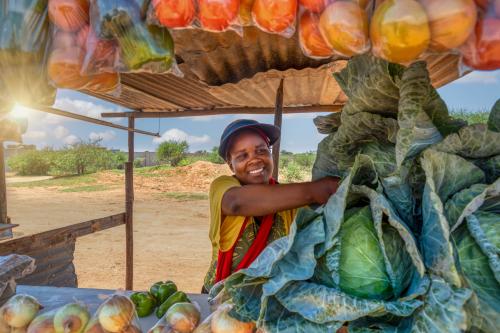For many American businesses, the COVID-19 pandemic has morphed from a temporary break from “normal” into a protracted struggle for economic survival. And no industry is more impacted than leisure and hospitality—the event venues, hotels, restaurants, and travel activities that rely on group social environments and in-person interaction.
Brookings Metro asked workers and small business owners in leisure and hospitality to share their experiences and detail what forms of assistance might be most helpful. We assembled their responses into a video shown at a public webinar with chef José Andrés and Marriott International CEO Arne Sorenson:
“Essentially, the industry blew up,” said an Atlanta-based chef. “And then, as we are putting it back together, people were asked to go back to work in the flames, for the sake of the economy.” Indeed, indoor service at restaurants and bars has become a leading source of community outbreaks, so it is critical that we get smarter about how we address this sector.
This post pulls together Brookings content and other research that can inform efforts to counteract the disproportionate impacts of the pandemic on the leisure and hospitality sector, including its workers, business owners, and surrounding communities.
The industry’s most vulnerable people and places
The leisure and hospitality sector includes not just global hotel chains, but local arts venues, recreation, restaurants, and bars. In 2017, small businesses (firms with fewer than 500 employees) comprised 99.5% of the sector, and 60.6% of employment within the sector. We estimate that women- and minority-owned businesses (WMBEs) comprise 63.5% of accommodation and food services businesses and 46.5% of arts and entertainment businesses.
Many of these firms have been forced to lay off most or all of their workers, and sometimes completely shut down. In May, 52.1% of small businesses in the leisure and hospitality sector reported temporarily closing, and 35.2% reported a decrease in the number of paid employees. As with business owners, Black, Latino or Hispanic, and female workers are overrepresented in hospitality occupations, as are youth and workers with less education. Thus, the impact of these closings and layoffs has deepened inequality across multiple dimensions.
American communities that are travel and tourism destinations—both urban and rural—have been hit especially hard as tourism has ground to a halt. Cities and states that are highly dependent on tourism and events for revenue will also disproportionately struggle in the absence of adequate federal fiscal aid, because those communities do not have enough alternative sources of economic growth to help keep business revenue streams and household incomes stable.
Seventy percent of U.S. metropolitan regions have at least 10% of their workforce in leisure and hospitality. Beach communities are highly vulnerable, with more than a quarter of workers in leisure and hospitality in Atlantic City and Ocean City in New Jersey, the island of Maui in Hawaii, and Myrtle Beach, S.C. However, the largest workforce with this level of exposure is in Las Vegas.

Of the 121 U.S. counties with more than a fifth of their workforce in hospitality, 89 are rural areas. These counties are home to over 2.2 million people. The map below grays out metropolitan counties to show which rural areas are most dependent on the hospitality sector. The top six counties in terms of hospitality workforce share (all over 40%) are in the rural West, adjacent to popular national parks. They include three counties in Colorado (San Miguel, Pitkin, and Summit), two in Utah (Grand and Garfield), and one in California (Mono).

Below, we present a three-part road map that draws insights from across Brookings to provide a framework for COVID-19 response, relief, and recovery in the leisure and hospitality sector.
Part 1: Supporting workers

Stabilizing income and protecting the health and safety of workers and their families is critical in providing a buffer for people to weather the COVID-19 crisis. Income stabilization and supporting career transitions will also stimulate consumer demand to keep capital circulating through the economy.
- Income security: Keep people in their homes and able to maintain their basic needs through programs such as expanded unemployment insurance.
- Food security: Ensure access to food relief, especially for vulnerable populations such as undocumented workers and low-income seniors.
- Workplace safety: Enhance health and safety standards and provide hazard pay to those who are still working in jobs that require interpersonal contact.
- Support for career mobility: Increase access to career guidance, child care, transportation, professional networks, education, and training to ensure workers who need to transition to a new field can find a quality job or start a new business.
- Health insurance and paid leave: Expand access to health care, health insurance, and paid sick leave to minimize barriers to being able to isolate and access care if a worker contracts COVID-19.
Part 2: Supporting small and medium-sized businesses

This June’s Paycheck Protection Program Flexibility Act corrected many of the major flaws in the Paycheck Protection Program (PPP). However, small business owners who already took out and used a PPP loan cannot benefit from the increased flexibility—and at this point, the extended PPP deadline has passed. This signature small business relief program must be extended and refashioned to better meet the needs of small businesses moving forward, and local governments should tailor their own programs to correct deficits in the PPP.
- Relief: Expand PPP relief, including to businesses who have already received one PPP loan. As COVID-19 continues to surge, small business owners in leisure and hospitality need access to support without pressure to reopen faster than is safe.
- Equity: Address the racial and geographic inequities in PPP administration. Organizing Black- and Latino- or Hispanic-owned small businesses can create a cohort effect to increase access to grants and technical assistance.
- Technical assistance: Increase access to training and technical assistance for small businesses to help them deploy adaptation strategies and to provide customized financial and operational advice.
- Microbusinesses: Target assistance to very small, street-facing leisure and hospitality entrepreneurs. Although these businesses are often perceived as high-risk, they are vital assets for healthy local economies.
Part 3: Rebuilding places

The pandemic’s impacts on leisure and hospitality go beyond the sum of individual households and businesses. Concentrated job losses, closures, and declining tax revenues compound each other. We need community-scale solutions to counteract these forces on multiple levels.
- Housing: Prioritize expanding the inventory of stable, long-term affordable housing, because the cost of housing is a heavy burden for the typical hospitality worker.
- Ownership: State and local leaders should think creatively and take steps to purchase vacant commercial real estate to stabilize neighborhoods and regenerate the hospitality and leisure sectors once it is safe to do so.
- Testing and contact tracing: Locate testing sites where hospitality and low-wage essential workers live. Employ local residents in contact tracing and provide clear off-ramps into quality careers.
- Digital equity: Many hospitality workers lost their only internet access when their places of work shut down. State and local governments must provide more equal access to internet services, devices, and digital literacy.
- Transportation: Invest in transportation infrastructure that can lower air pollution levels while preserving mobility and stimulating tourism in the future.
Reinventing a more equitable industry
Given the protracted nature of the pandemic, we need a set of policies to carry us through the next two years, designed to counteract the disparate impacts of COVID-19 on workers, businesses, and communities. This selection of Brookings work can reinvent the hospitality and leisure sector, allowing leaders, workers, and policymakers to approach recovery from a more holistic perspective.
The Brookings Institution is committed to quality, independence, and impact.
We are supported by a diverse array of funders. In line with our values and policies, each Brookings publication represents the sole views of its author(s).






Commentary
‘Back to work in the flames’: The hospitality sector in a pandemic
August 20, 2020